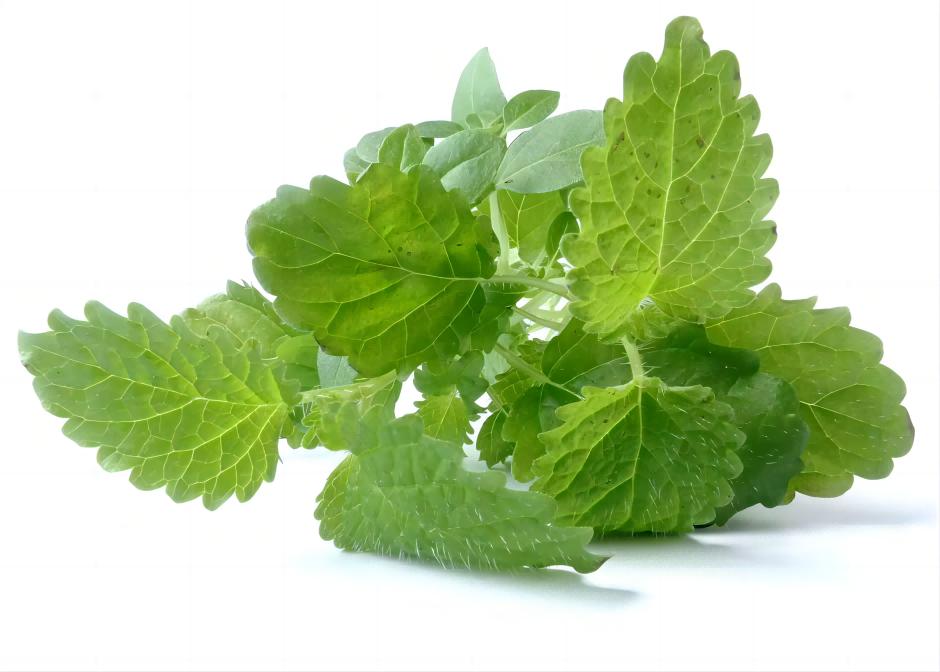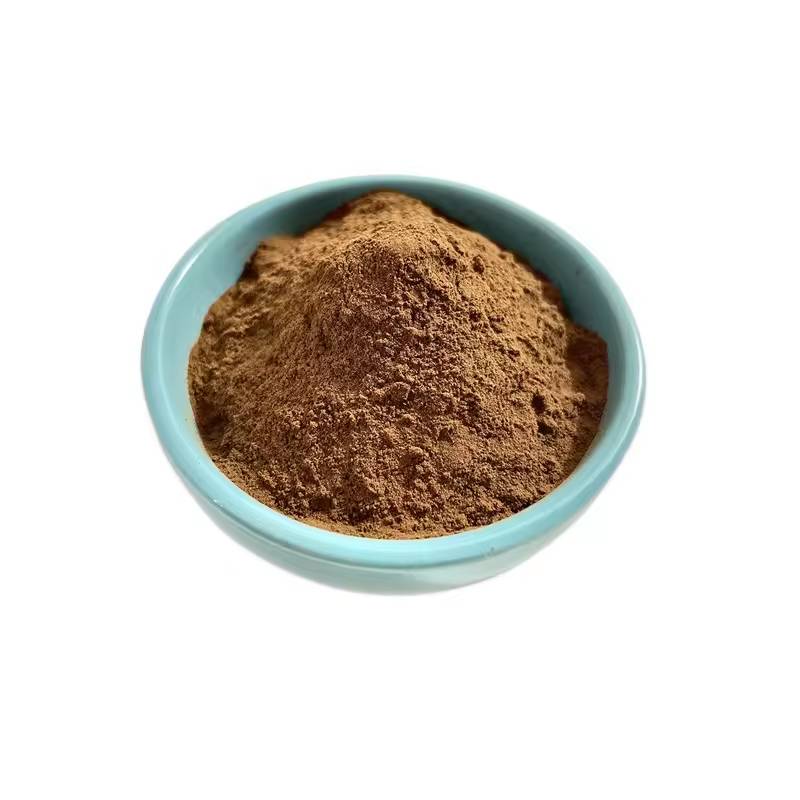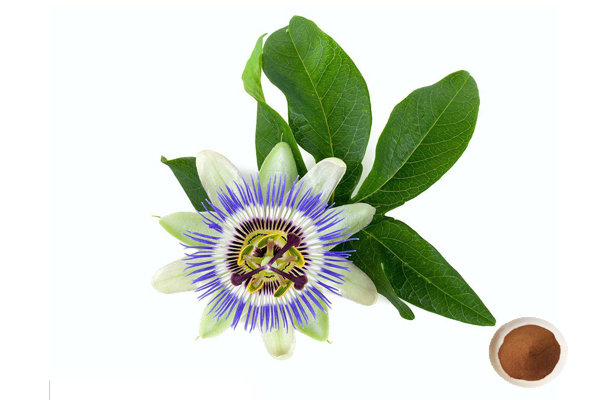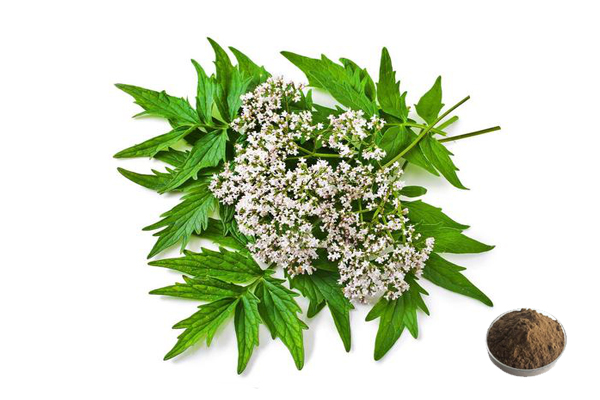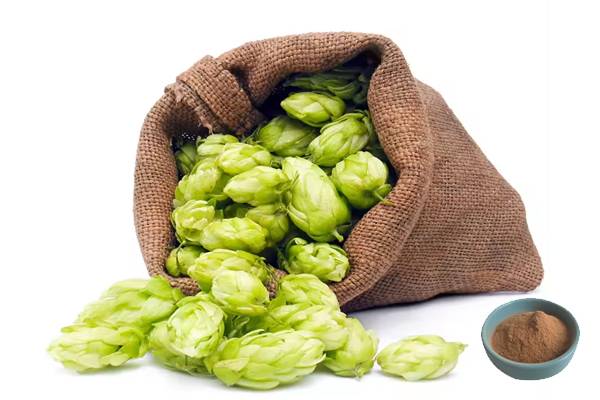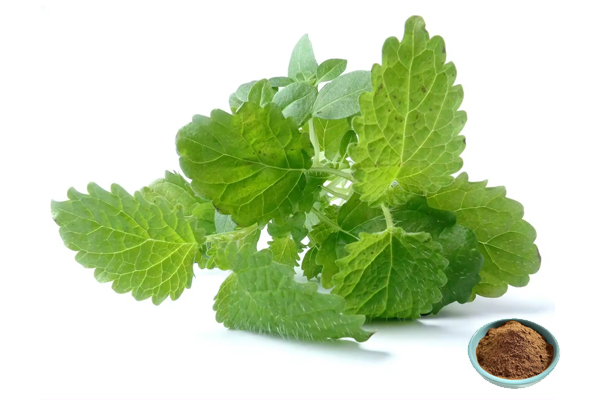Extracto de hoja de bálsamde limón al 5% de ácido rosmarínico
Fuente :Melissa officinalisL. Hierba entera
Nombre latino :Melissa officinalisL.
Principio activo: ácido rosmarínico
Especificación :5%
Método de ensayo :UV
Aspecto: polvo amarillo marrón
Residuos de plaguicidas: cumplir con la norma (CE) n º 396/2005
- descripción
- Hoja de datos
- Certificado de certificado
-
¿Qué es el extracto de hoja de bálsamo de limón?
Melissa, el nombre del género Melissa, se deriva de la palabra griega que significa "amor de las abejas". Su olor fresco, dulce, con olor a limón, por lo que también se le conoce como bálsamde de limón. A pesar de su similitud en apariencia con la menta, el bálsamno está en la familia de la menta, aunque algunos pueden llamarlo menta perfume de limón. El extracto de hoja de bálsamde limón es el ingrediente activo extraído de las hojas de Melissa officinalis L., familia Labiatae.
Modern research has confirmed that vanillin, citral, rosemary acid, and other components in the lemon balm leaf extract can inhibit GABA transaminase in rat brain tissue, thus interfering with GABA metabolism, increasing the content of GABA in the brain, reducing the excitability of the nervous system, and playing a calming and soothing role in resisting anxiety.
La tecnología de primavera verde suministra extracto de hoja de bálsamde limón al 5% de ácido rosmarínico, el polvo es homogéneo y fino, con propiedades estables, buena solubilidad y bajo contenido de humedad, lo que puede extender el período de almacenamiento.
Green Spring Technology es una empresa de biotecnología líder en China con 7 certificaciones, y 7 patentes y ha sido galardonado con Halal, Kosher, COSMOS, BRC, IFS, FDA, ISO y muchas otras certificaciones. Nuestros productos se fabrican con los m ã ¡S altos est ã ¡Ndares internacionales de la industria, cumpliendo con la UE EC396, UE 2023/915 y los m ã ¡S altos est ã ¡Ndares de residuos de disolventes.
Especificaciones:
Nombre del producto
Bálsamo de limón Extracto de hoja
Nombre latino
Melissa officinalisL.
fuente
Melissa officinalisL. Hierba entera
Principios activos
Ácido rosmarínico
especificación
5%
Método de ensayo
UV
apariencia
Polvo de color amarillo marrón
Residuos de plaguicidas
Cumplir con la norma (CE) n º 396/2005
Reglamento:
Se ajusta a la normativa de la UE.
Discover Our Comprehensive, Compliant, and Consistent Standardized Lemon Balm Extract Ingredient Solutions.
¿Busca un presupuesto?Benefits:
Calms and Soothes, Fights Anxiety
Rosmarinic acid is one of the active ingredients of lemon balm leaf extract. It has been proved that rosemarinic acid can inhibit GABA transaminase and inhibit the degradation of GABA, thus increasing the concentration of GABA in the brain, which has a calming and soothing effect on anxiety. In addition, rosemarinic acid has antioxidant and free radical scavenging and nerve cell protection effects, which in turn improves anxiety. Lemon balm leaf extract can be used as an anti-anxiety, mild sedative with improved mental mood, and some studies have shown it to be effective in relieving stress.
Antimicrobial
The antimicrobial properties of Lemon Balm have also been demonstrated, the ethanol fraction of lemon balm leaf has very significant antimicrobial and antiseptic effects and has synergistic antimicrobial effects with sodium nitrite, sodium benzoate and potassium sorbate. Other components in the extract such as rosemarinic acid, caffeic acid and flavonoids are known to have antibacterial activity against the following bacteria: Bacillus subtilis, Bifidobacterium bifidum, Corynebacterium roqueforti, Escherichia coli, Klebsiella spp., Acidophilus spp., Lactobacillus fermentum, Lactobacillus plantarum, Lactobacillus rhamnosus, Listeria monocytogenes, Pseudomonas aeruginosa, Salmonella enteritidis, Shigella spp., Staphylococcus aureus and others. resistance, and fungi such as Candida albicans, Aspergillus niger, and Streptomyces symphonis are resistant.
Anti Inflammatory and Antioxidant
The components of linalool, linalooic acid, linalooene, and linalool hydrocarbons contained in the extract of Melissa officinalisL. have antibacterial, anti-inflammatory, and antioxidant activities, which can inhibit the growth of various bacteria, including Staphylococcus aureus, Escherichia coli, Pseudomonas aeruginosa, and Streptococcus, as well as inhibit various inflammatory reactions, including cytokines (such as interleukin-1) α)、 Release of antioxidants and anti cytotoxic substances; In addition, Lemon Balm also contains a large number of antioxidants, such as vitamin C and flavonoids, which can inhibit the formation of free radicals and prevent oxidative damage.
Anti-Allergy and Oil Control
One of the most commonly used botanical extracts for allergies, Lemon Balm Leaf extract can easily handle allergies that not even German Chamomile can handle. At the same time, the oil-controlling power of bee balm is excellent, effectively balancing the skin's oil.
Applications:
For Health Products:
Lemon Balm Leaf Extract has antidepressant, anti-anxiety, and sleep aid effects. In addition, lemon balm has a variety of effects such as improving memory and neurodegenerative diseases, antioxidant, antibacterial, and anti-inflammatory, gastrointestinal protection, regulation of menstrual disorders and dysmenorrhoea in women, and improvement of hyperlipidaemia. As an ingredient, vanilla extract has been used as an additive in various health products.
In Cosmetics:
Lemon Balm Leaf extract contains rosmarinic acid, which protects the skin from the damage and oxidative stress caused by sun and screen blue light exposure. It has antioxidant activity that reduces the production of reactive oxygen species (ROS), thereby reducing oxidative damage to the skin caused by UV and blue light exposure. Lemon Balm Leaf extract powder has been used as a cosmetic ingredient.
-
descargar
Extracto de hoja de bálsamde de limón 5% de ácido rosmarínico COA


 inglés
inglés francés
francés español
español ruso
ruso coreano
coreano Japonés japonés
Japonés japonés



